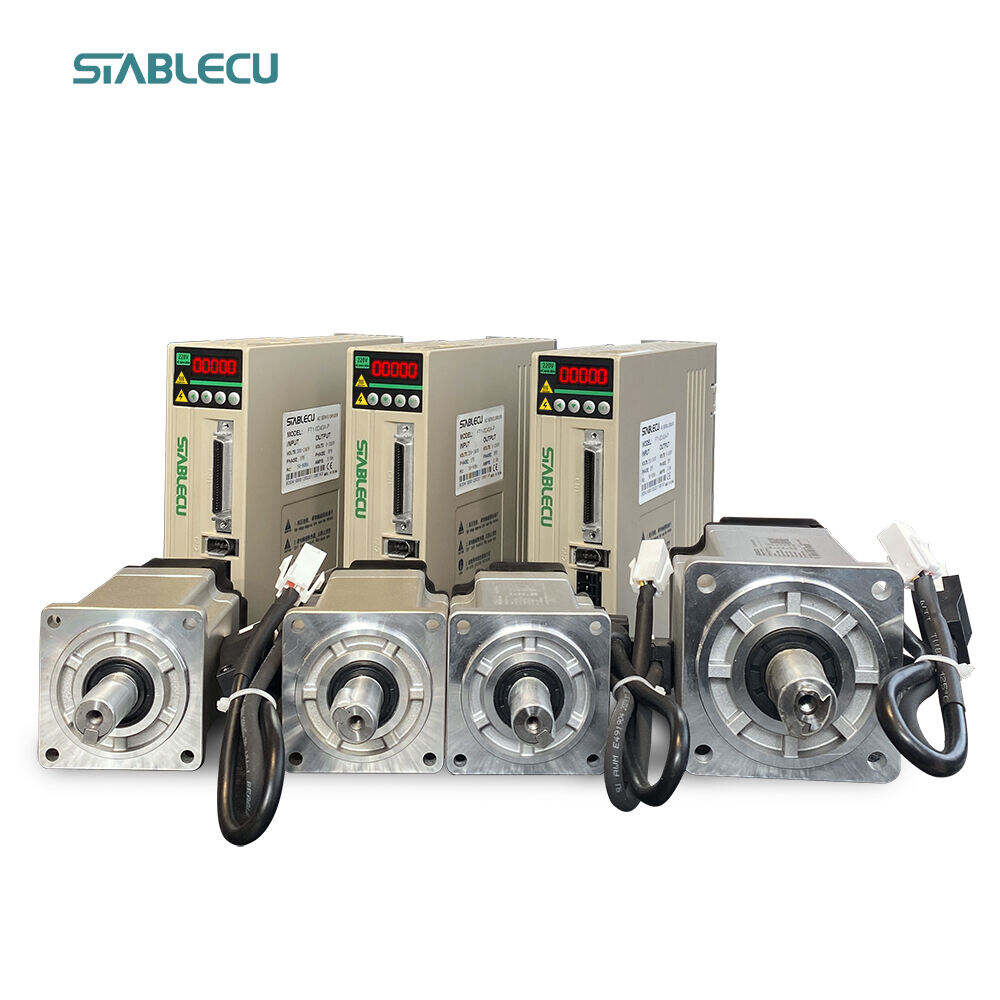Servo Motor is A Precise and Reliable Power Solution
Many industrial, robotic, and automation applications require the use of a servo motor. It is considered a critical component that can be utilized in various industrial sectors.
Composition and Working Principle
Typically, a servo motor comprises three components: DC motor, sensor (encoder), controller. The motor causes rotation while the encoder measures the position and speed of its shaft. On the other hand, based on input signals from a control system, the controller compares desired positional data with encoder’s actual measurements about speed or torque etc., for controlling movement patterns of servos.
Types of Servo Motors
There are several types of servo motors designed for different applications. For example, AC servo motors are frequently used in large industrial settings because they have high torque and fast speeds. However, DC servo motors would be more applicable to smaller-scale operations like robotics or precision machinery. For highly accurate positioning even if they are not categorized as servos, stepper motors are also commonly employed.
Advantages of Servo Motors
The advantages of using a servo motor instead of traditional electric motors are numerous. Because they utilize closed-loop control systems which provide their precision and repeatability these devices can be positioned very accurately. Furthermore, such kind of engines gives excellent capability for both speed regulation or torque control enabling gradual acceleration or deceleration periods to be achieved without jerks. In addition to this fact, they have an energy-saving design that ensures conversion at minimal losses levels from electricity into mechanical forces.
Applications of Servo Motors
In wide number of industries around the world where automation has been embraced. These kinds of engines have become relevant equipment for production lines among many others things. These machines are widely used in manufacturing where they include CNC equipment as well as packaging machinery while it is worth noting that some systems rely on them significantly even though it may not necessarily mean all robots deal with them. Also, medical equipment including robotics and other industries that employ machines in their operations cannot do without servo motors.
In conclusion, the servo motor is a highly specialized and precise motor that provides accurate position, speed, and torque control. It can be used in a wide range of industrial sectors such as robotics or automation where precision is essential. The future of accurate motion control will continue to be influenced by technological advancements associated with these devices.


 EN
EN
 AR
AR
 BG
BG
 HR
HR
 CS
CS
 DA
DA
 NL
NL
 FR
FR
 DE
DE
 EL
EL
 HI
HI
 IT
IT
 JA
JA
 KO
KO
 PL
PL
 PT
PT
 RO
RO
 RU
RU
 ES
ES
 SV
SV
 CA
CA
 TL
TL
 ID
ID
 SR
SR
 UK
UK
 VI
VI
 SQ
SQ
 HU
HU
 TH
TH
 TR
TR
 FA
FA
 AF
AF
 MS
MS
 KA
KA
 BN
BN
 LA
LA
 TA
TA
 KK
KK
 UZ
UZ
